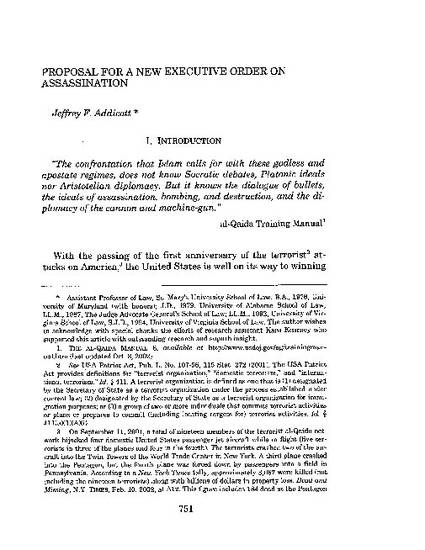
Both clarity and respect for the rule of law demands that a new executive order on assassination be enacted that properly defines the term “assassination” and is couched in the legal parameters of self-defense. In prosecuting the War on Terror, the United States has confronted myriad issues concerning how best to deal with the new threat of al-Qaida-styled terrorism and those rogue nations that support terrorism. The two principle documents associated with these concerns are the National Security Strategy of the United States of America ("National Security Strategy") released by the White House on September 17, 2002 and Executive Order 12,333 banning assassination.
Executive Order 12,333 is deficient and should be replaced by a new executive order which clearly defines the circumstances under which individuals may be lawfully targeted for death by military forces--either in peacetime or war. Alternatively, if the President does not replace Executive Order 12,333 with a new and more precise executive order, two interlocking principles militate against overturning Executive Order 12,333. The first of these reasons regards properly interpreting the most common definition of assassination; the second considers the proper use of armed force under the rule of law. Those who advocate that the ban on assassination should be lifted without modification are essentially advocating that the United States should be able to engage in unlawful killing or murder.
